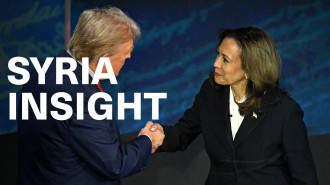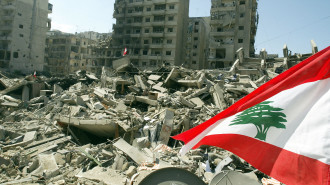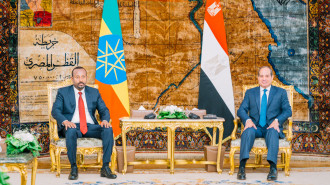Kurdish disunity on the frontlines in Iraq and Syria
Catch up with the first part of their story here.
KRG vs Rojava: Two irreconcilable models
The Iraqi Kurdish authorities' proximity to Turkey contributes to the exacerbation of intra-Kurdish tensions.
The breakdown in relations between Baghdad and Erbil over the Kurdish region's 17 percent share of the federal budget from total oil sales has pushed the Kurdish administration further into Ankara's embrace. The row came to a head in February 2014, when the central government in Baghdad cut revenue transfers to the Kurdish region, setting off a severe economic crisis.
With debt ballooning to $16 billion, Erbil slashed spending and has been only intermittently able to pay salaries to its 1.4 million public sector workers, including the armed Peshmerga.
Looking for alternative sources of income, the Iraqi Kurdish government turned to Turkey for loans and to expand its independent oil sales on the world market via the southern Turkish port of Ceylan, becoming increasingly dependent on President Erdogan and his ruling Justice and Development party (AKP).
But such economic dependence has come at a political price: Erbil's unconditional alignment with Ankara over Syrian and Turkish Kurds.
| Who's who? A guide to the acronyms of the Kurdish region |
|
|
IRAQ - PUK - Patriotic Union of Kurdistan. Founded in 1975, the other main political party in the KRG, with its power base concentrated in the city of Sulaimaniah and the contested city of Kirkuk. A social democratic party, it has its own armed Peshmerga forces usually called the 70 Unit. - PKK - Kurdistan Workers' Party. Armed group founded in 1978 in Turkey; one of its founders and current leader Abdullah Ocalan has been in jail in Turkey since 1999. Waging an armed campaign against the Turkish state since 1984, and outlawed in Turkey as a terrorist group, the PKK has its base in the Qandil Mountains, located in the northeast of Iraq's Kurdistan Regional Government (KRG) territory. - PYD - Kurdish Democratic Union Party. Founded in 2003 in Syria, it is the most powerful Kurdish political party in Rojava. It is led by two co-chairs, Salih Muslim and Asya Abdullah, and is an ally of the PKK. - YPG - People's Protection Units (YPG). Founded during the early phases of the Syrian conflict, it is the main armed forces of Rojava, an ally of the PKK and the backbone of the Syrian Democratic Forces (SDF). |
Since the AKP's sweeping victory in the November 2015 national elections, the decades-old conflict between the Turkish state and the PKK has significantly escalated. While condemning the Turkish bombing raids on the Qandil mountains, a PKK stronghold located inside the territory of the Iraqi Kurdish region, Erbil appears to have firmly sided with Ankara as it blames the PKK for disrupting the ceasefire with Turkey.
Likewise, with the Islamic State group losing ground in Syria and the proclamation of the Rojava/Northern Syria region, Erbil has copied the Turks in closing borders to Syrian Kurds, despite the domestic political costs, in a region where popular solidarity with Syrian Kurds remains high – and at a volatile time due to the deepening economic crisis.
This is a recurrent theme in interviews from Kobane to Kirkuk.
"Erdogan's policy towards the Kurds is dictated by Kurdophobia; the AKP doesn't want the Kurds to have rights anywhere. We don't understand, however, why Erbil is following him. They are Kurds but they are acting exactly like the Turks," PYD co-chair Salih Muslim told The New Arab.
"Erbil uses the border closure as a political tool to put pressure on us. I assume they are under pressure from Ankara, but they are also wary of our democratic model."
The PYD aims to pursue a system of democratic confederalism theorised by Ocalan which hardly sits comfortably with Erbil's oil rentier model.
The former envisages broad local autonomy via grassroots democratic organisation of all of society's constituents within existing international borders, with the aim of reshaping the entire Middle East from below; in the latter the highly patriarchal Barzani-dominated KDP controls the oil portfolio, dispensing it as patronage to gain allegiance.
Supporters of the PYD accuse Barzani of Baathist-style centralisation of power and corruption; Barzani's backers lambast the PKK as a Stalinist-like totalitarian movement bent on silencing any dissenting voice.
Since the victory against IS in Kobane, northern Syria, the Syrian Kurdish YPG and their women's counterpart, the YPJ, have tripled the size of Kurdish-controlled territories, where grassroots organisations have managed to restore public services such as schools and hospitals in spite of the conflict.
The YPG/YPJ have swiftly become the backbone of the Syrian Democratic Forces (SDF), a 30,000 strong Kurdish-Arab formation, which is Washington's main allied ground force in the war against IS in Syria.
Many in Rojava, however, are aware of the fragility of their revolution – not least due to the many enemies it has already earned. In informal conversations in Qamishli, Kobane, and along the Manbij frontline, several activists and fighters claim that the US has been granted the right to build three military bases, one in each canton of the Rojava federal region, namely Afreen, Kobane and Jazeera.
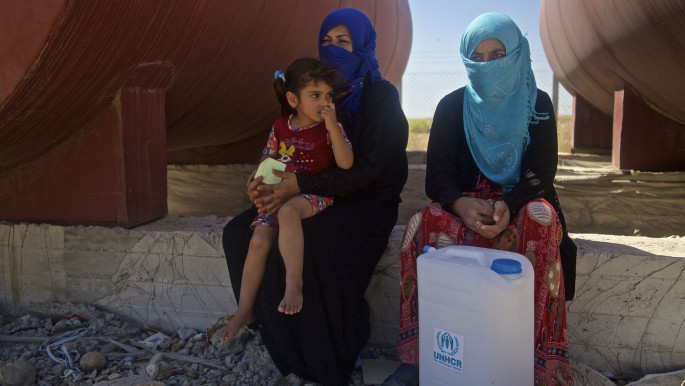 |
|
| In pictures: Click here for Davide Vignati's photoessay studying the rival groups fighting for Kurds in Iraq and Syria |
Although Salih Muslim of the PYD prefers the definition "logistic centres necessary for the US-led coalition's war effort against IS", such as the already operational Rmeilan airfield in the Jazeera canton, it is clear that the Syrian Kurds view US military air cover as the best insurance policy against possible encroachments by Damascus and Ankara in a post-IS scenario.
Reports of a potential imminent rapprochement between the Syrian regime and the Turkish government makes this a distinct reality.
For now, the main aim is to destroy the self-proclaimed Caliphate, but in the longer run the Syrian Kurds advocate for the establishment of a federal state in Syria, along the lines of democratic confederalism.
This is enough to worry leaders in Ankara, which fiercely opposes another Kurdish entity on its southern border, and Erbil, where many see the Rojava model as a powerful alternative to its own experience.
"We never thought of redrawing borders to create a Syrian Kurdistan on the Iraqi Kurdish model," Muslim continues. "Rather, we are trying to expand our system of self-governance to the rest of Syria and, in the future, to all parts of Kurdistan."
| Article continues below |
 |
This political project is rejected outright by the official Syrian opposition in exile, and appears irreconcilable with Barzani's, the political endgame of which appears to be to consolidate the Iraqi Kurdish government's takeover of the territories disputed with Baghdad, especially in the oil-rich areas around the city of Kirkuk.
When the Iraqi army fled in the face of the IS advance in 2014, the Peshmerga took over the military bases it abandoned, establishing de-facto Kurdish control over the city and its surroundings. Since then, Barzani has taken to talking about a referendum on independence, a subject he discussed again recently, suggesting that it was "now closer than at any other time".
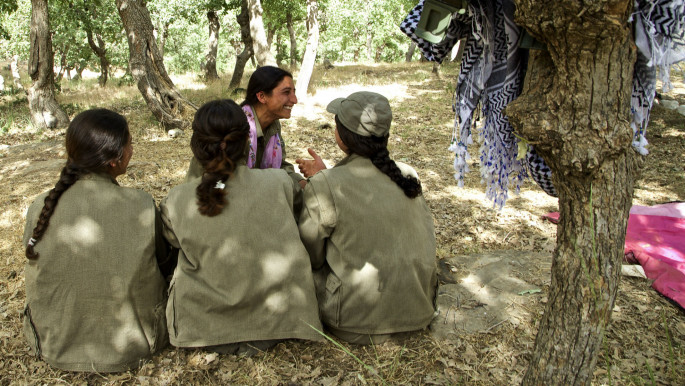 |
|
| In pictures: Click here for Davide Vignati's photoessay studying the rival groups fighting for Kurds in Iraq and Syria |
But even in Kirkuk, the Kurds are deeply divided between the two main parties, Barzani's KDP and the PUK, which controls most levers of political and military power in the city, historically one of its strongholds.
IS' summer blitzkrieg, however, created an opportunity for the KDP to wrest some of this control from its historic rival, as it took charge of western Kirkuk province, including the Bai Hassan and Avana oilfields that were formerly under the central government's Northern Oil Company.
KDP Peshmerga General Kamal Kirkuki, responsible for a sector of the frontline with IS in this province, told The New Arab that a referendum for the Iraqi Kurdish region's independence will be held "before the end of 2016".
Most rightly dismiss the idea of independence as a ploy by the ruling elites to divert attention from more pressing issues marring the Iraqi Kurdish entity.
The current economic crisis is both one of those issues and a strong argument against holding a referendum. But along the frontline with IS, the Peshmerga have built a 200-kilometre trench stretching from the town of Makhmour south-east of Mosul all the way south of Kirkuk and down to Tuz Khurmato, with fortified outposts every couple of kilometres.
In some sections, the trench is accompanied by five-metre-high concrete slabs, conveying the impression that, more than a shifting frontline in the sand, Erbil has a more permanent border in mind.
Franco Galdini is a freelance journalist specialising in the Middle East and Central Asia, where he has lived on and off since 2000. Franco is co-editor of Muftah's Eastern Europe and Central Asia section. Follow him on Twitter: @el_fra_ngo
Davide Vignati is a freelance journalist and humanitarian worker with ten years of field experience in the Middle East, Africa and South East Asia.

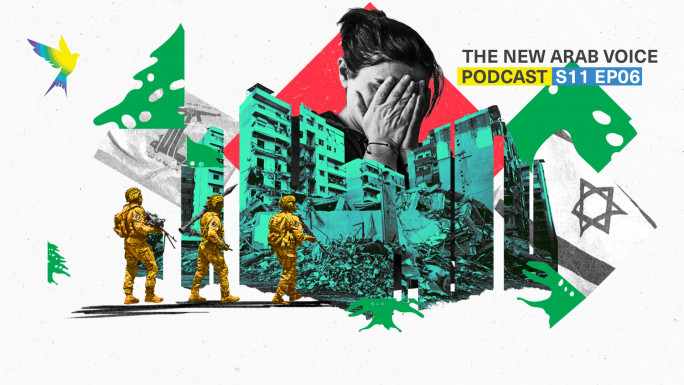
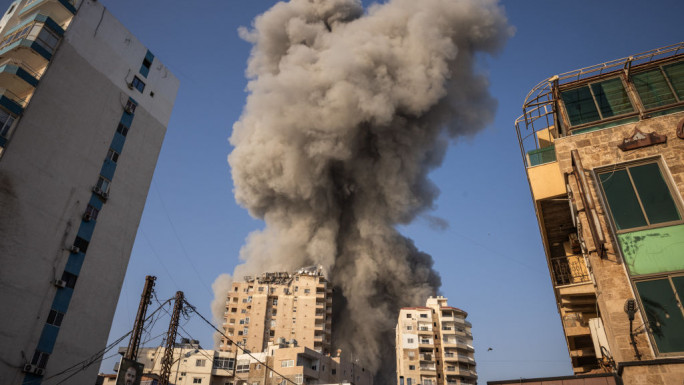
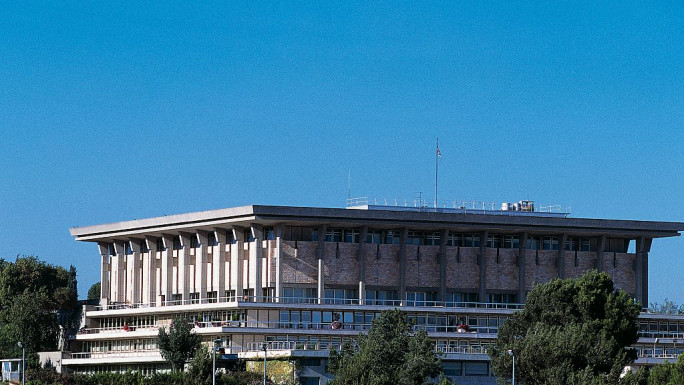
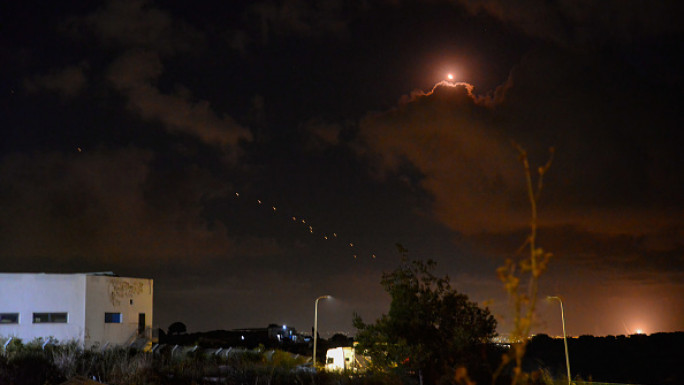
 Follow the Middle East's top stories in English at The New Arab on Google News
Follow the Middle East's top stories in English at The New Arab on Google News
